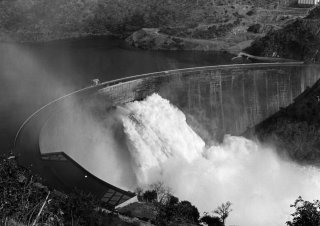Aug 22 2014
1 Comment
Large Dams Just Aren’t Worth the Cost
By Jacques Leslie
Sunday Review
New York Times
Thayer Scudder, the world’s leading authority on the impact of dams on poor people, has changed his mind about dams.
A frequent consultant on large dam projects, Mr. Scudder held out hope through most of his 58-year career that the poverty relief delivered by a properly constructed and managed dam would outweigh the social and environmental damage it caused. Now, at age 84, he has concluded that large dams not only aren’t worth their cost, but that many currently under construction “will have disastrous environmental and socio-economic consequences,” as he wrote in a recent email.
Mr. Scudder, an emeritus anthropology professor at the California Institute of Technology, describes his disillusionment with dams as gradual. He was a dam proponent when he began his first research project in 1956, documenting the impact of forced resettlement on 57,000 Tonga people in the Gwembe Valley of present-day Zambia and Zimbabwe. Construction of the Kariba Dam, which relied on what was then the largest loan in the World Bank’s history, required the Tonga to move from their ancestral homes along the Zambezi River to infertile land downstream. Mr. Scudder has been tracking their disintegration ever since.
Once cohesive and self-sufficient, the Tonga are troubled by intermittent hunger, rampant alcoholism and astronomical unemployment. Desperate for income, some have resorted to illegal drug cultivation and smuggling, elephant poaching, pimping and prostitution. Villagers still lack electricity.
Mr. Scudder’s most recent stint as a consultant, on the Nam Theun 2 Dam in Laos, delivered his final disappointment. He and two fellow advisers supported the project because it required the dam’s funders to carry out programs that would leave people displaced by the dam in better shape than before the project started. But the dam was finished in 2010, and the programs’ goals remain unmet. Meanwhile, the dam’s three owners are considering turning over all responsibilities to the Laotian government — “too soon,” Mr. Scudder said in an interview. “The government wants to build 60 dams over the next 20 or 30 years, and at the moment it doesn’t have the capacity to deal with environmental and social impacts for any single one of them.
“Nam Theun 2 confirmed my longstanding suspicion that the task of building a large dam is just too complex and too damaging to priceless natural resources,” he said. He now thinks his most significant accomplishment was not improving a dam, but stopping one: He led a 1992 study that helped prevent construction of a dam that would have harmed Botswana’s Okavango Delta, one of the world’s last great wetlands.
Part of what moved Mr. Scudder to go public with his revised assessment was the corroboration he found in a stunning Oxford University study published in March in Energy Policy. The study, by Atif Ansar, Bent Flyvbjerg, Alexander Budzier and Daniel Lunn, draws upon cost statistics for 245 large dams built between 1934 and 2007. Without even taking into account social and environmental impacts, which are almost invariably negative and frequently vast, the study finds that “the actual construction costs of large dams are too high to yield a positive return.” Read More
